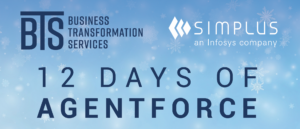The consulting industry is worth approximately $250 billion, and only rising as the intersections between technology, business, and operations grow. However, consulting projects are only as good as the consultant team assigned. After the presales, scoping, and estimating stages, it’s time for building and executing the project requirements. It’s during this phase that you can start to really tell if your consultants have the fortitude and skills to see the project—and client relationship—through.
A great consultant doesn’t relax as the project nears so-called “completion.” Great consultants know there’s a lot more at stake than just a checkmark for getting a job done. Watch for the great consultants who follow these five crucial best practices that make sure a project doesn’t only get done but gets done well.
Communicate proactively
Great consultants don’t leave the client wondering. By anticipating common questions from their own consulting experience, skilled consultants come prepared with those answers and then some to build up customer trust throughout project execution.
Additionally, and perhaps counterintuitively, great consultants will be upfront and not always tell you what you want to hear. They’re honest. A great consultant is the type who will start a conversation with “I have an update for you. Here’s what’s happening and why.” and then proceed to explain what they’re going to do about it. For example: if the budget starts to come into question and there are still outstanding requirements, a great consultant will approach you with this concern and offer up plans that fit the budget limitations but still address most of your desired requirements. At the same time, they’re not going to promise things they know you can’t afford. And they should always provide the best solution regardless of budget, but also be able to work with you to back into an amicable solution where possible.
Offer a visual view of the plan
Another sign of great consultancy is visual demonstrations. More than just leading meetings and sending update emails, a great consultant will be ready and eager to walk you through the project process visually, explain the steps, and showcase what is being built for you even during rudimentary stages.
This also makes it easier for both you and the consultants to pivot when necessary. If a visual demonstration or whiteboard session mid-project stream raises some concerns, both you and the consultant have the flexibility to adjust the plan with clear communication and set expectations. It’s ultimately about understanding the situation on both sides and coming to consensus on the outcomes.
Prepare themselves and come equipped with the right questions to ask as the trusted advisor
Consulting is, by definition, providing expert advice. And advice can’t truly be given without having asked a few questions. Great consultants won’t just come into your project as an order-taker. They come in hungry to understand you, your business, and ask questions about it all so they can offer the best solution for your needs.
Great consultants will have the product and industry knowledge to look at your requirements, add their own expertise based on experience, possibly say no if a certain request is not in your best interest, and ultimately create the best solution possible for you. For example: in Salesforce implementation projects, a consultant often has to think about pick-list values driving process and the admin requirements to complement the user requirements. Is it functioning the way the admin needs it to? Great consultants will investigate day-to-day functionality like that.
So watch for the consultants asking for details, edge cases, driving requirements, etc. Anything that drives toward a solution. A quiet consultant who just nods in agreement with you is a consultant who might not be the best fit for what you need.
Use tactful and easy-to-understand language
Additionally, great consultants know how to talk to their clients. This is two-fold: they’ll use easy-to-understand language (rather than losing you in the jargon-filled stream of consciousness that’s running in their own internal monologue), and they’ll use tactful language.
First is the easy-to-understand language. This means a great consultant is the one who truly takes on business analysis from your perspective and uses the wording that you’ll understand to talk about the project. They’re clear, concise, and continuously put themselves in your own shoes.
Secondly is tactful language. Technology projects can sometimes bring emotions to the surface with competing opinions to maneuver. Great consultants have experience with this and will use calm, level-headed language to navigate those emotional climates. They’re confident in the work and what they have to say, but they won’t be defensive or take concerns personally.
Execute, execute, execute
Finally, a great consultant is also the one who gets the job done. But this point means more than just checking off requirements and then slipping away when the project looks done to them. A great consultant will execute project requirements with a wealth of knowledge, expertise, and solutioning skills. They will truly become your trusted advisor based on their proven experience and relentless approach to solution design that works for you personally, not just technically.
Consultants come from all backgrounds, skillsets, and personalities. And that variety is great. But these four practices—from proactive communication and visual demos to the language they use and the questions they ask—are traits you simply can’t forego when selecting the ideal technology project consultants.















0 Comments